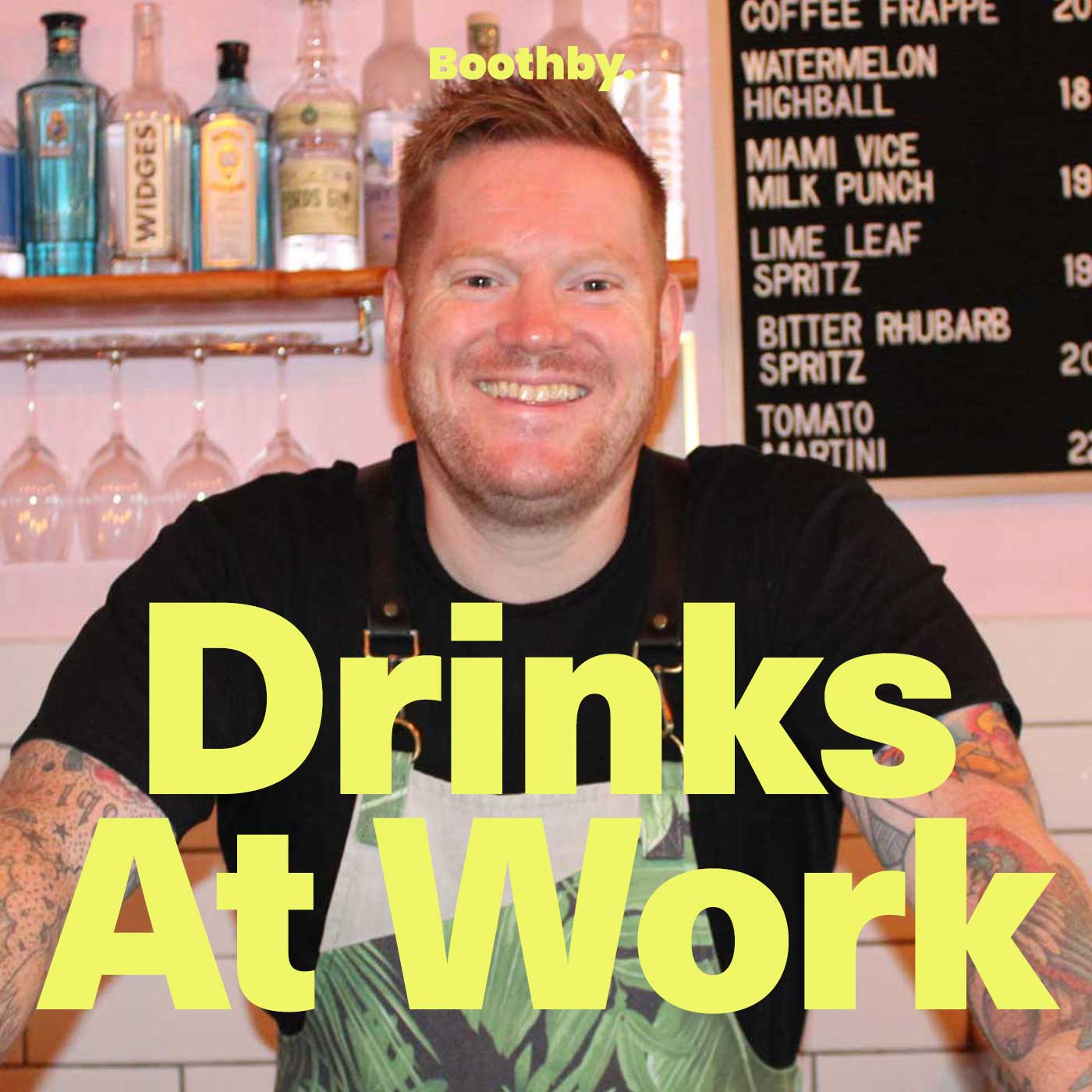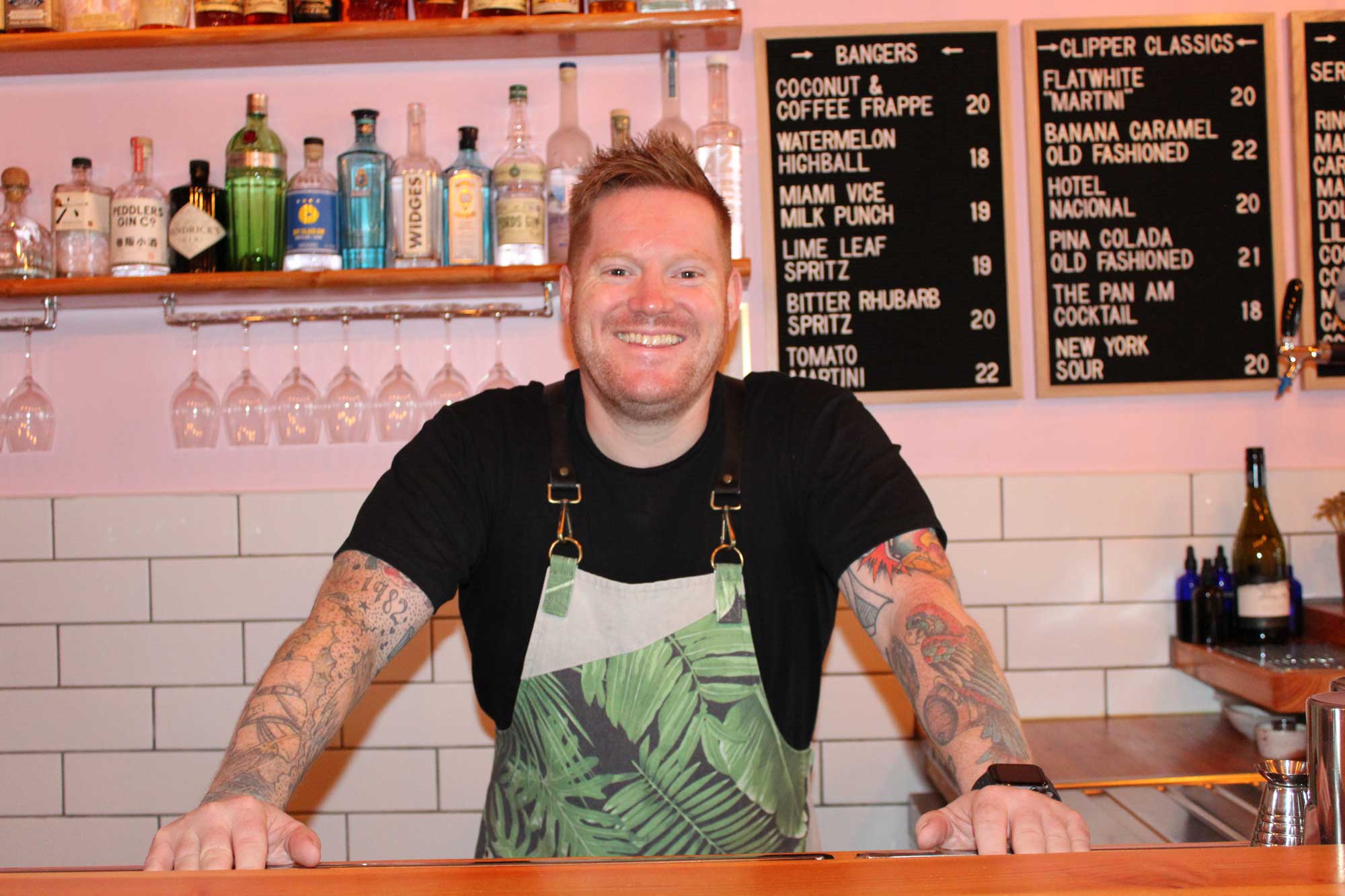The bar as showroom: Barney Toy’s bar Clipper is making money many ways
Creating multiple revenue streams means that “Clipper can just be Clipper,” he says.

A quick note up top: thanks to everyone who has subscribed recently — we're now over 890 Boothby members — and a growing number of you are supporting Boothby with a paid membership. It's amazing, and very much appreciated. If you too would like to support the drinks journalism Boothby does, you can do so from $10 a month right here.
You can listen to this episode in the player here, or take a listen on Apple Podcasts, Spotify, or wherever you get yours.
10 years ago, trends in the bar world were more discernible: there was the arm garters and speakeasy thing; the Americana thing; the whisky bar thing; the gin thing. (Actually, it feels like the gin thing will never, ever, ever die). But the idea of trends today is less useful — we contend with constant information overload, with swiping and liking and watching, everyone is busy, busy, busy. And if there is one big trend in the bar world right now, it’s that everyone is doing everything all the time everyplace.
I have noticed one change — trend, if you will — with its roots in the pandemic, that I think is here to stay: more and more bars are working out how to get money from more and more places. They’re becoming less reliant on trade going through the tills, instead they are supplementing it with revenue from other places. Selling bar merch has been popular for the better part of the last decade — I’ve got friends who still have the original Ramblin’ Rascal Tavern tees from 8 years ago — but there’s only so many shirts a bar can sell. And there are other avenues — consultancy is one, creating consumer products another, side gigs as brand ambassadors, you name it.
That’s because, for most people, you’re not likely to get rich opening a bar. “It’s the dream of working for yourself, right?” says Barney Toy on this episode of Drinks At Work. “You buy yourself your dream job, and you don’t get paid for it sometimes.”
Originally from the UK, Barney Toy is top flight bartender who chose Auckland as the place to open his own bar, Clipper, in 2019 (you may know him from such stories as this one and this one here).
It’s regarded as one of the best bars in New Zealand, but it has also functioned as a showroom of sorts for the experience and skills that Barney and his business partner, Darren Mynes, bring to their other work: they do a spot of bar consultancy, and they’ve started First Class Cocktails, a quality batched cocktail service that supplies other hospitality venues in New Zealand. For this, Clipper is the guarantee that they know what they’re doing. I know of a few bars developing this model of a bar as a showroom — so it’s great to get into it with Barney in this episode.
We also talk about his creative process, the attitudes he has adopted after becoming a bar owner, and how bartenders ought to value themselves and their services correctly. We get into that, we get into mentorship, and a whole lot more.
Below, as usual, there’s a few of my favourite quotes from the interview (lightly edited and condensed for clarity), but I encourage to give the full episode a listen — there’s some interesting thought going into what they do at Clipper.

The Quotable Barney Toy
Barney and his business partner at the bar, Darren Mynes, have two questions for any drink that is considered for the list: “Is it delicious? Can we recreate it time after time?”
“Every day, my entire meal for that day was a foot long sub.” As I mention to Barney in the interview, Sven Almenning — he of Eau de Vie and Speakeasy Group ownership fame — says that before you open a bar, ask yourself: are you willing to live on 2 minute noodles for years? If you’re not, maybe bar ownership ain’t for you. For Barney, that’s something he was prepared to do, and did.
And you’re gonna need a work ethic. “I’m not afraid of hard work,” Barney says.
“[The] industry don’t pay your bills.” Clipper regularly hosts guest shifts, and Barney is keen to host hospo in his bar. But the bar has to appeal to more than just the hospo crowd. “I think this is an age thing: we opened a bar for consumers, not bartenders.”
“When you become a bar owner, you’ve got to put all your chips on yourself.” When Clipper opened, Barney made it clear he thought they were bringing New Zealand the bar it needed — and didn’t yet have. “You’ve got to be like, Fuck it — this is the best bar ever.”
“There’s a gap of mentorship.” Barney says he was fortunate to be mentored by some very good bartenders throughout his now 22 year long career. But as he says, he didn’t have access to the resources young bartenders do today — it took a while to get great information on bartending and cocktails on Google.
“If you have a Pina Colada on the menu, I’m ordering it.” Words to live by, if you ask me.
The Spirited Awards are open for nominations now
Tales of the Cocktail’s Spirited Awards are open for nominations from now until February 22nd.
I recently got involved as the volunteer Asia Pacific Co-Chair for the awards, and the one thing I’d love to stress to everyone who’ll listen is this: all it takes to be consider for an award is one nomination. That’s it. Yes, you can nominate yourself — in fact, it’s encouraged that you do. There is no prize for getting more than one nomination.
In my view, Australia hasn’t always done as well in the Spirited Awards as it ought to, and having been a voter in the process for a few years now, I can tell you I’m often surprised at the lack of nominations from Australia. The truth of the matter is, for Australian bars and bartenders to get voted for by the judges, they have to be nominated. If you’re not nominated, you’re nowhere. It's up to you.
You can nominate yourself or someone else at the Tales website here — nominations close on the 22nd of this month.

